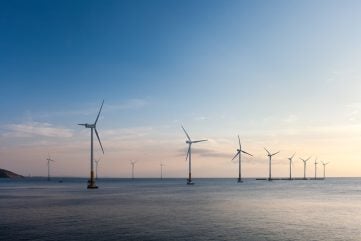
British oil and gas giant Shell could still pull out of an ongoing tender for Norway’s first major offshore wind farm as concerns over the project’s profitability linger.
The company’s Norway manager Marianne Olsnes told an energy conference in Oslo on Wednesday that the business case is “not looking great”.

Discover B2B Marketing That Performs
Combine business intelligence and editorial excellence to reach engaged professionals across 36 leading media platforms.
“[Shell] might not bid,” she added while speaking during a panel discussion. On the sidelines of the event, she told Reuters that the tender conditions were “very challenging”.
Energy companies have been asked to develop certain parts of the project that are usually left to grid operators, Olsnes said, with the power set to be delivered to a market that is not interested in higher-cost electricity.
“But of course, we are not done with the pre-qualification, so we don’t even know whether we are still in the game,” she added.
The uncertainty from Shell reflects a global crisis for the industry regarding the economic viability of new wind energy projects. Soaring inflation, interest rate hikes and increased costs across the supply chain have made it difficult for companies involved in major new wind projects to stay profitable.

US Tariffs are shifting - will you react or anticipate?
Don’t let policy changes catch you off guard. Stay proactive with real-time data and expert analysis.
By GlobalDataSeveral companies, including Scandinavian wind major Ørsted, have called for better subsidies and tax breaks as production costs for planned wind farms soar. In the UK alone, it was estimated that costs last year increased by 20–30%, with the average price of wind turbines increasing by 33% since the end of 2021.
At the end of last year, Ørsted walked away from two major wind projects in development in the US as costs continued to spiral, in a blow to the country’s fledgling industry.
The tender for Norway’s first commercial-scale offshore wind farm came with an offer of subsidies totalling $2.7bn (Nkr28.48bn), but companies and lobby groups still think this might be insufficient for them to turn a profit on the project.





